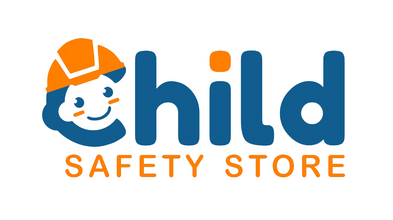
New Beverage Recommendations for Children Under Five
The food and drinks that go into our children’s bodies are very important. They can help to establish a healthy lifestyle as your kids continue to grow. They also prevent the negative consequences of unhealthy consumption of sugars and fats. At Child Safety Store, it is the overall health of a child, inside and out, that is most important. Let’s take a look at some recently released beverage guidelines that were created with the wellbeing of babies and children up to four years of age in mind.
The Panel of Experts
Encouraging positive nutritional habits starts at a young age. Luckily, experts at several well-established health groups recently convened on the topic of healthy beverage choices for children. They agreed on a set of recommendations for the consumption of beverages by children from birth through five years of age.
Healthy Eating Research, a kids' nutrition program by the Robert Wood Johnson Foundation assembled a panel that consisted of experts from several major medical groups, including the Academy of Nutrition and Dietetics, the American Academy of Pediatric Dentistry, the American Academy of Pediatrics, and the American Heart Association. Those involved were focused on dietary practices, dentistry, pediatrics and child health and nutrition.
Understanding the Beverage Recommendations
The panel of experts released guidelines for beverage recommendations. This included a caution against flavored drinks for children, flavored milk and juices. According to Healthy Eating Research, the organizations recommend comprehensive guidelines that include breast milk, infant formula, water and milk. While people often associate food choices with a diet, drinks can have a significant impact on a person’s overall health. For this reason, drinks with extra sugars and less nutrients were eliminated from the report.
Non-Dairy is a No-Go
Contrary to popular belief, the substitution of non-dairy products, such as soy milk, does not hold any unique nutritional value that plain milk does not. This is according to the official beverage recommendations issued recently. That said, these products might still be good alternatives for children who are allergic to dairy milk, are lactose intolerant or whose family abstains from the use of animal by-products. If this is the case, you should discuss the best alternative with a doctor.
Beverage Recommendations By Age
The beverage recommendations by the expert panel were according to age group. Below are guidelines per group:
From 0-6 months, babies should only be given breast milk or infant formula. No other liquid of any kind should be fed to babies of this age. This includes water. As we just concluded, Baby Safety Month, this is critical news for parents.
Infants who fall into the 6-12 months age range should still be given breast milk or infant formula almost exclusively. Fruit juices, even when it’s 100% juice, should never be given. Plain water can be introduced into their diets once solid foods are incorporated into their intake. No other liquid should be given.
Once a child reaches one year old, they can drink whole milk and plain drinking water. Even when fruit juice is 100 percent fruit, it should only be given occasionally.
Last, between the ages of two and five years of age, you can switch a child to skim or low-fat milk. Again, plain drinking water is still fine. They should still only get fruit juice occasionally, and only when it is 100 percent juice.
As you can see, these beverage recommendations are important for parents to keep in mind. That goes for the child’s earliest days at home and when they head back to school. Proper nutrition is an important element of child safety.
